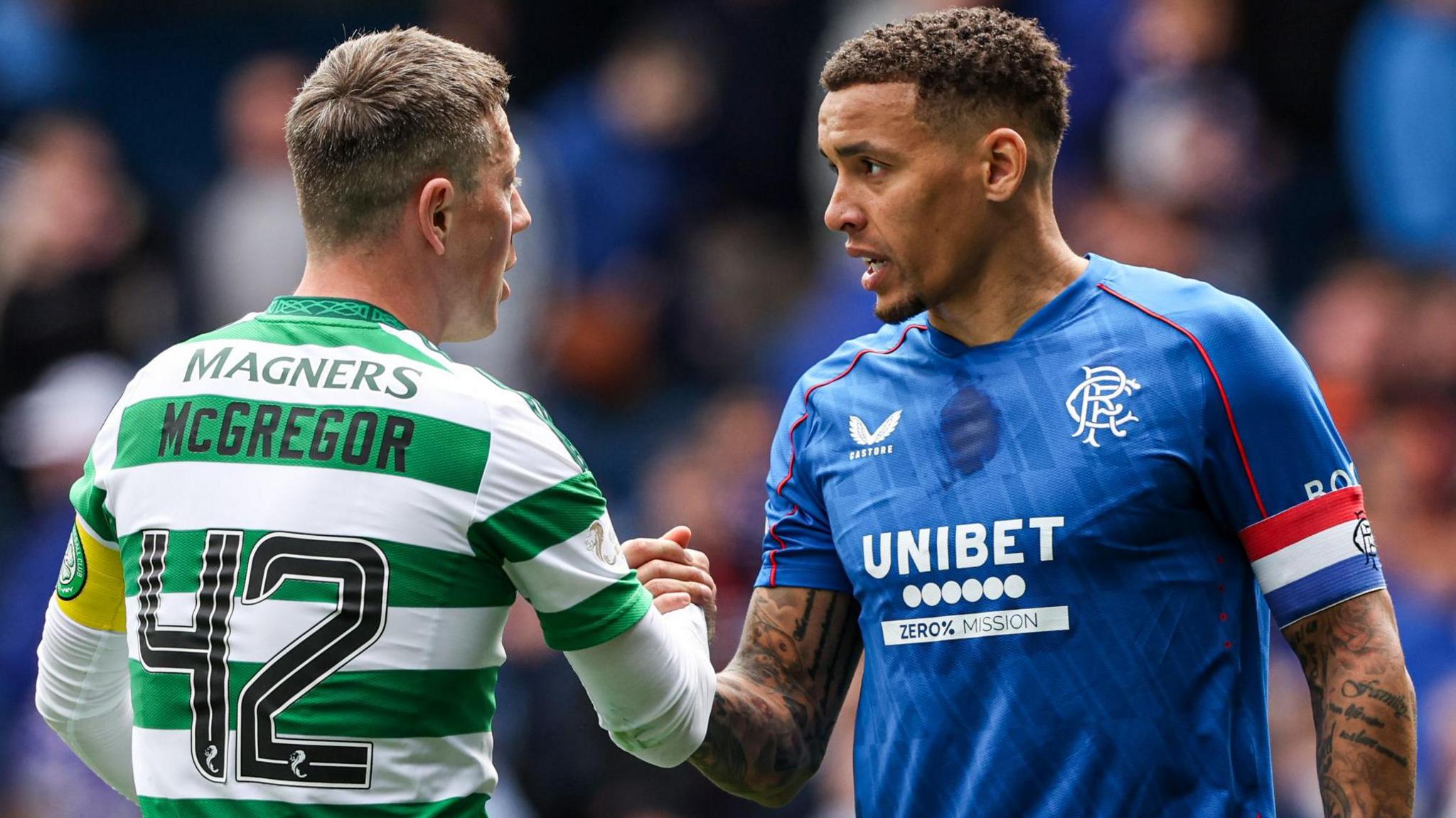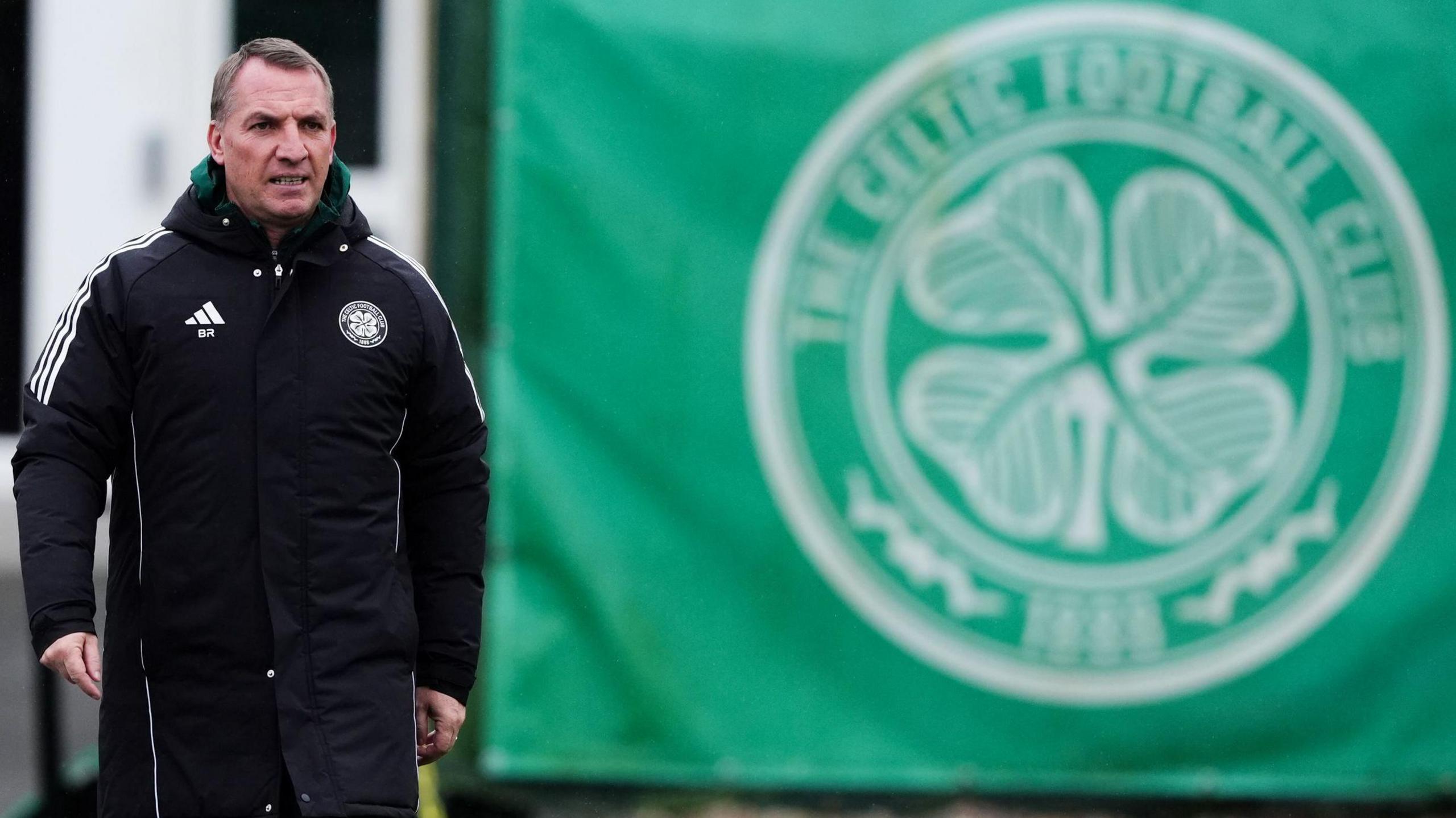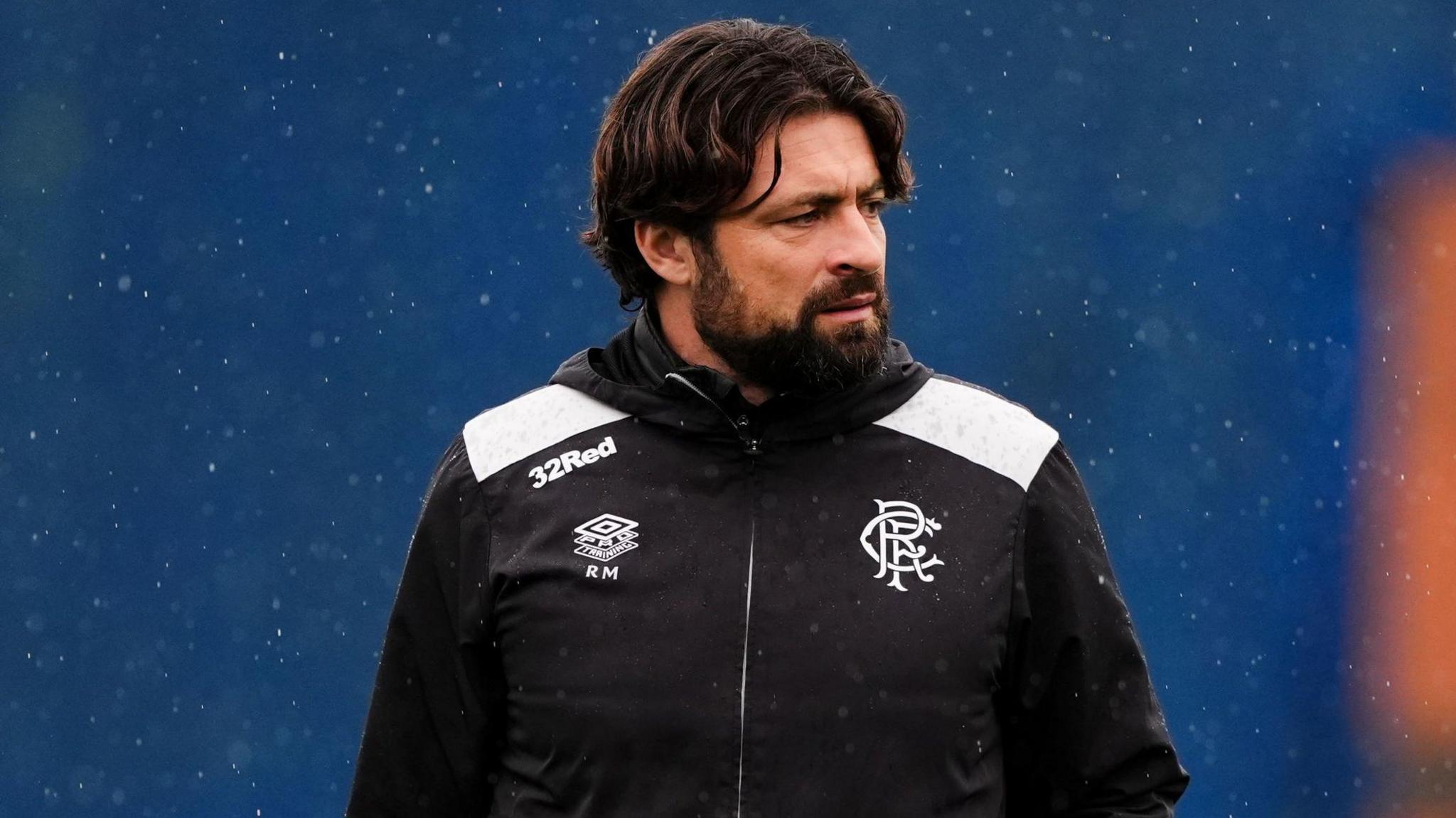Celtic v Rangers: Bitter rivals united in chaos

Celtic and Rangers will face off at Hampden on Sunday under different managers from when the teams last met at Ibrox in September
- Published
When Glasgow's two main football clubs meet at Hampden Park, winning means everything.
But rarely has there been such a curious build-up to a fixture that hardly needs a sideshow.
In Scotland, when chaos comes knocking at the doors of Celtic and Rangers, it's headline news.
And, lately, neither Old Firm club has been short of turmoil.
That might sound overstated to the casual observer or those outside Scotland's central belt, but in few UK cities is football so deeply woven into the social fabric as it is in Glasgow.
This time, though, there's an unusual symmetry: both clubs are struggling, on and off the pitch, at the same time.
Indeed both dugouts will feature different managers from when the rivals last met and played out a goalless draw at Ibrox on 31 August.

Brendan Rodgers won 11 major trophies in two spells as Celtic manager
In Glasgow it is rare for both clubs to be in what some would describe as a state of "crisis" at the same time.
For over a decade, Rangers' turbulence has provided their rivals with a steady diet of schadenfreude, but ahead of Sunday's League Cup semi-final, both clubs have been fighting for the negative headlines.
In the east end, Celtic fans have spent weeks protesting against a board they see as out of touch.
Manager Brendan Rodgers seemed to validate their frustration when he publicly criticised the club's failure to strengthen the squad in the summer.
Missing out on the lucrative Champions League only fuelled the unrest - and appeared to justify his complaints.
After years of harmony, success and near-total domestic dominance, all was not well inside Parkhead - and something had to give.
That "something" was Rodgers' unexpected resignation, swiftly followed by a blistering attack from Celtic's major shareholder, Dermot Desmond.
The Irish businessman, usually a reserved figure, has quietly controlled the club for three decades.
But in a rare public statement, he accused Rodgers of being divisive, self-serving and of misleading fans.
In football language it was a two-footed challenge with studs showing.
Rodgers has yet to respond.
Rodgers v Desmond: Analysing the Celtic fallout
- Attribution
- Published28 October
Rangers sack Martin after 17 games
- Attribution
- Published5 October
The ferocity of Desmond's comments pulled back the curtain on tensions that had been simmering for some time.
And they may have signalled the end of the unity Celtic once prided itself on.
Rogers has been replaced in the dug out, for now, by former manager Martin O'Neill and ex-player Shaun Maloney.
For fans, the dismay wasn't just about the public fallout, but that it was usually Rangers who cornered the market in mayhem.
Across the Clyde, Rangers' troubles are nothing new.
Since the club's financial collapse in 2012, supporters have lived through regime changes, court battles, managerial misfires and even liquidation.
Many feel they've endured enough. But in Glasgow, football isn't a pastime. It's an inheritance.
That's something the club's new American owners are discovering fast.
When he was appointed head coach in the summer fans warned that Russell Martin wasn't the right fit.
But the consortium stood firm, keen to project authority.

Russell Martin was sacked as Rangers head coach after 17 games
Seven games and a torrent of venomous protests later, Martin was gone.
The owners admitted they had underestimated the intensity of Glasgow football.
They're not the first, and they won't be the last.
Unlike O'Neill, who managed Celtic from 2000 to 2005, new Rangers head coach Danny Rohl will experience his first Old Firm match on Sunday.
The appointment of the former Sheffield Wednesday manager ended a protracted search for Martin's replacement.
For once, both sets of supporters share a common cause: a desire for change in the boardroom. History suggests they often get what they want.
But this isn't just a Celtic and Rangers story. Both clubs are now glancing along the M8 with unease, toward a challenger that dares to dream.
Heart of Midlothian sit top of the table and have the backing of Brighton owner Tony Bloom, the data-driven investor who helped transform the Premier League club.
When Bloom promised Hearts fans an end to Old Firm dominance within a decade, many dismissed it as hubris.
Given it hasn't happened in 40 years, you can understand why.
Yet Bloom's methods - and the unity around Tynecastle - are making people wonder if this could be the season the Glasgow duopoly is finally broken.
Whatever happens come May, unity is something Celtic and Rangers would pay good money for right now as they prepare to do battle once again.